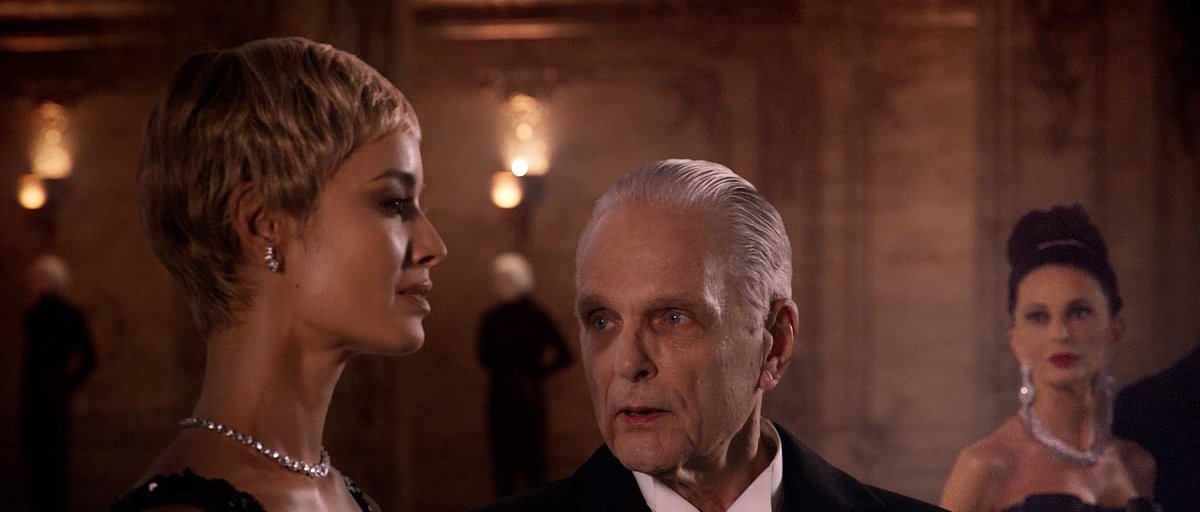Rating: 8
*Spoilers*
Apologies for the radio silence, all. I’ve been insanely busy prepping new projects, so haven’t had much time for reviews lately. But last night we watched Valley of the Gods, the new movie from Lech Majewski, Josh Hartnett, Berenice Marlohe and John Malkovich. It’s an impressionist wonder, full of striking landscapes, absurd realities, and MEANING. I emphasize that last word because, as usual, the critics didn’t fucking get it, and neither did the audiences, so I thought I’d tap out a few lines here to let you in, if that’s the sort of thing you’re into. Because, damn it, Majewski knew EXACTLY what he was trying to say. The reviews I found afterward go well enough over the literal parts, because apparently that’s how deep we are as an audience and society in 2020, so I’m skipping all of that and assuming you’re already up to speed, or at least watched the thing.
Valley of the Gods is about mankind as creator, as the embodiment of God, in all of our absurd conflict, and our troubled, if not outright divorced, relationship with the Earth (she left us for the sky).
The richest man on earth is the one who renounces wealth. Malkovich’s character flings collector cars from cliffs, disavows words, and prefers to be homeless. Valley of the Gods (like Christ) would like you to understand that wealth is poverty. Our material possessions, all of our cassette tapes and collections of various junk, are meaningless. Malkovich’s Wes Tauros is creator and destroyer, guard and liberator, content in frustration, as his endless guests go on with their strange imprisonment to their own tiny paradigms, divorced from nature and freedom. When he sets them free, they take a look around, then close their cells again, happier in confinement – not for the physical safety, but for the mental comforts of their own absurdities. “West Taurus” btw, is a thinly veiled take on mankind as seen through the lens of western civilization, symbolized by the Bull of the market that we worship. He lost his wife (the Earth), and though he crafts her twin he can’t even bring himself to speak directly to her. That opera in the fountain? Probably something to do with climate change, or the ocean of reality, I’m not sure I got it on the first watch. But the point isn’t that I got it all (I’m not sure why he tried to drink that bottle with his mind), rather it’s simply that Majewski was obviously saying something, and it’s not half as obscure as the critics would have you believe, if you’ll just pay a little attention.
So if Tauros is the Bull – god manifest as civilization – then our protagonist, John Ecas, is the man of nature (ecos). And he’s not well. Walking around backwards in a blindfold, he’s modern man to a T (for my misanthropic soul, anyway), aware of his own absurdity and endlessly desperate to narrate himself a way out of it. Ecas trying to climb a mountain wall, with all of the noise and useless material trappings of modern city life tied to his feet, is unable to get to the top. Only by letting go of that string of pots and pans tied to his ankles, does he set himself free to rise.
This is my single favorite piece of arthouse film symbolism from 2020.
So when the Navajo drunk, Grey Horse (he’s not black or white, but he will find the way), climbs that same rock wall in the very next scene, and reaches the top by some miracle, he has sex with the yellow dirt, and conceives a miracle child of stone – prophecized in Navajo myth – that grows to be a giant and heralds the apocalypse by teething on the buildings of LA (or something like that anyway). Let’s just say it’s safe to assume that Majewski foresees a return to nature as a destructive but inevitable climax to this experiment of the universe manifesting itself as civilization, imprisoning ourselves in our careers and wealth, and that excess will be catapulted into the dark like the nothing it always was, that rich and poor alike, despite all of our ritual and sacrifice, will face the epic, hard loneliness of existence, and mankind will always, tragically, be wedded to the Earth, whether she will have us or not.
And time will turn us all to stones . . .
